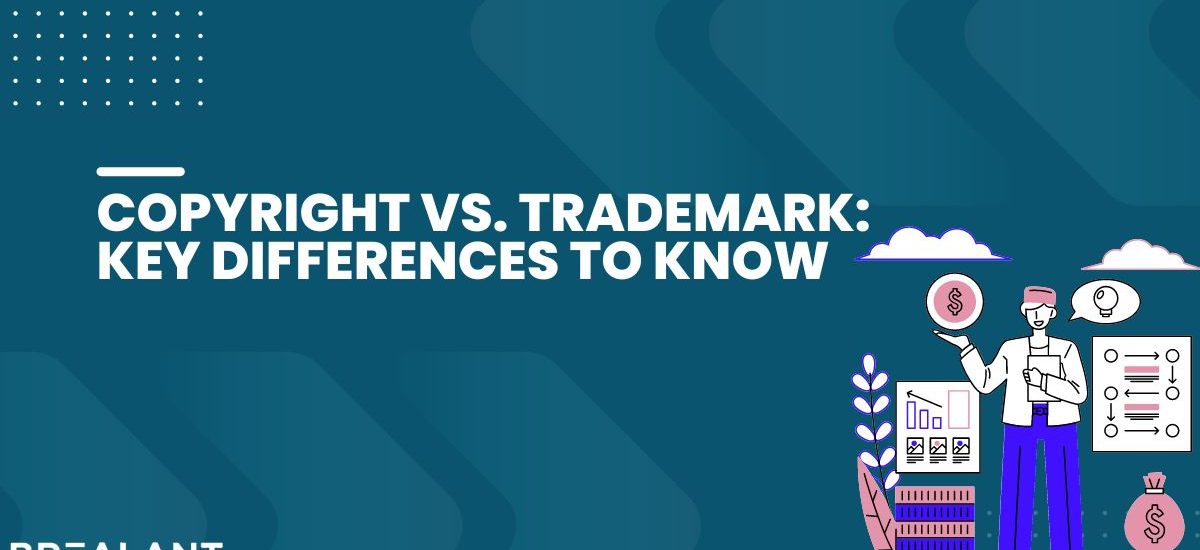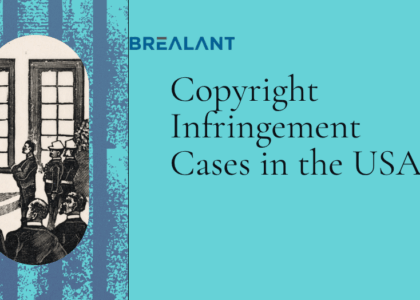Protecting the identity of your inventions and brands is as essential as making them successful. To avoid someone using your invention’s name or your brand’s logo, protecting them with copyrights or trademarks is necessary. By obtaining copyright or a trademark, your intellectual properties or creations will be safe, and usage of them without your knowledge will be prohibited. However, copyright vs. trademark is a little confusing term; let us look at them in detail in this blog.
What is a Copyright?
Copyright is a way to protect your original works, inventions, or your intellectual properties such as art, architecture, music, writings, etc. In precise, copyright can protect original authorship works such as novels, poetry, art, movies, songs, computer software, etc.
To protect your property by using the copyright, your invention should be preserved in any form. Copyrights cannot protect creations that do not exist in a tangible form. For example, a speech, principles, ideas, and common property works.
Filing a copyright doesn’t involve much effort. Once your work has been translated into some definite form, such as a book, research file, or music, it will automatically become your rights. However, to make yourself the original author of your invention, registering it with the U.S. Copyright Office is advisable.
What is a Trademark?
Trademarks protect the rights of a company, its name, logos, slogans, and more. To be specific, trademarks protect anything associated with a brand or business. For example, Toblerone chocolate packaging and the shape of Hershey’s Kisses chocolates.
While discussing trademarks, it is essential to speak about service marks. Though both terms are associated with each other, they have some differences. A service mark is used to differentiate the service provided by one company from others that provide the same service. For example, “Fly the Friendly Skies”-is the slogan of United Airlines.
Besides protecting a brand, a trademark avoids confusion between businesses or brands that provide similar goods or services. A company or a business cannot use a symbol or logo similar to the other brand providing the same service.
Now you know about the copyright and trademark. Let’s understand copyright vs. trademark!
Copyright vs. Trademark: Which one to choose?
Copyright and trademark are both used to legally protect the rights of an inventor to his intellectual properties such as literary, art, designs, logos, brand names, etc. Intellectual property encompasses both the inventions of an individual and a business.
One of the main differences between a copyright and a trademark is that copyright protects books, videos, artworks, etc., that are produced by the creation of the mind, and a trademark protects the rights of a company brand, such as its logo, symbol, slogan, etc.
The validity of a trademark is forever until you continue to use it, and it doesn’t expire. However, the validity of a copyright depends on the year in which the property was created. It is because copyright laws have been changing over the years. From 1978, most inventions have been provided copyright for 70 years after the creator’s death. Generally, the author or the inventor holds ownership of the copyright even though another company publishes it.
Copyright vs. Trademark: How to protect them?
To prevent copyright intruders from using or copying your works without your permission, there are some ways to protect your copyrights and trademarks. Some of them are listed below.
To protect copyright, you can:
- Mark your work or invention using a sign or watermark.
- Send your work to yourself, denoting that it has been in your possession for a specific period.
- Use the copyright symbol to denote your copyrighted work
- Use creative commons, which provides free copyright licenses for your work and the freedoms you want.
- In addition to that, registering copyright officially will make it easier to file a suit whenever another party has used your property without your permission.
To protect a trademark:
- Register your trademark on the U.S. Patent and Trademark Office (USPTO). You can either do it on the website or work with a lawyer to help you with the procedures.
- Before you decide to trademark your brand name, ensure the name is not in use with the help of the state trademark office.
- After registering your trademark with USPTO, you can use the trademark symbol to denote your trademarked property.
To sum up
The critical difference between copyright and trademark is that copyright protects inventions that result from the creation of the mind, such as art, literature, etc., and will expire after a while. Whereas the trademark uniquely identifies a brand and doesn’t expire for a lifetime. Choosing between these two depends on the type of property you own. You can also seek help from an attorney, lawyer, or legal service to guide you through registering your intellectual property rights.
Disclaimer-Brealant provides access to independent attorneys and self-service tools, is not a law firm, and does not provide legal advice.










